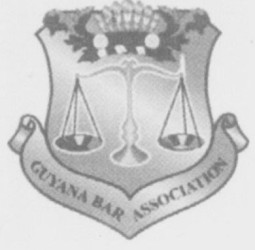The Guyana Bar Association welcomes the announcement of the establishment of a Steering Committee for Constitutional Reform. While the membership of the Committee has been announced under the chairmanship of attorney-at-law Mr. Nigel Hughes, the Terms of Reference have not been publicised. Indeed, we have learnt that there are just broad generalities announced by the Prime Minister but no Terms of Reference.
There has been some criticism of the Government for its failure to consult on the persons to be appointed to the Committee, including the Guyana Bar Association. Constitutional reform is a matter that involves every citizen and is arguably the best protection of citizens against excesses by the Government. While the Association believes that the contribution of wider interests helps to arrive at more informed results, not only is the legal profession more than adequately represented on this Committee, but the current process is simply “to lay the groundwork for a new constitutional reform process”.
 The Guyana Constitution is an incomplete document. Some of the Amendments made under Herdmanston Accord were required to be taken to a referendum. Around twelve years later, that has not been done, a reflection of how seriously our parliamentarians, the Guyana Bar Association and the rest of civil society treat the country’s most sacred document.
The Guyana Constitution is an incomplete document. Some of the Amendments made under Herdmanston Accord were required to be taken to a referendum. Around twelve years later, that has not been done, a reflection of how seriously our parliamentarians, the Guyana Bar Association and the rest of civil society treat the country’s most sacred document.
Constitutions are often described as living documents to be read, and altered, in the context of prevailing circumstances. As the Preamble to the 1980 Constitution states in its closing paragraph:
“As citizens of Guyana, we adopt these fundamental laws and make provision for their amendment to reflect changes in our society, inspired by our collective quest for a perfect nation, whose characteristics include the commitments, concepts, and other principles proclaimed in this preamble.”
The Reform process itself recognised the importance of keeping the Constitution under constant review with provision for the establishment of a Parliamentary Standing Committee for Constitutional Reform “for the purpose of continually reviewing the effectiveness of the working of the Constitution …” That too has not functioned effectively and the new Committee must now see their task as a fresh start to the constitutional reform process. The country has a lot of catching up to do when it comes to constitutional reform.
A constitution is a national document to which, at least in theory, all the people subscribe. In the polarised and politicised Guyanese environment in which the Government and the arms of the State operate, the constitution itself is affected by those extraneous considerations. The members of the Committee will no doubt address their collective minds on how best to overcome such formidable obstacles.
Constitutional reform is also a time consuming process. While it is a continuous process, it is not a good thing to be tinkering with a Constitution every time there is some tension or strain. There have been really only two major constitutional changes since Independence: the 1980 Constitution and the Herdmanston Reforms between 2000 and 2003.
Prior to the major reforms of 1980, Guyana had two forms of the Westminster constitution viz, monarchical Westminster (1966 -1970) and republic Westminster (1973 – 1980), both of which had in common the separation of the Head of State from the Head of Government. On August 29, 1969 a motion of the National Assembly was passed for Guyana to become a Republic which it duly did on February 23, 1970.
The 1980 Constitution had its roots in a Referendum in 1978 and is described as the Socialist Constitution because it was supposed to take the country from capitalism to socialism. But equally important was the move from Governor General to President in which the offices of Head of state and Head of Government became one. Constitutional writers such as Professors Rudolph James and Harold Lutchman have written very critically of that development and its abuse.
In their book Law and the Political Environment in Guyana, Professor Lutchman, who is now close to the Government, and Professor James, wrote that “In a real sense the Presidential system, as indeed the Constitution of which it is a part, is a product of the political and economic crises now existing in Guyana. As such it is more likely to be an instrument for the exercise of absolute power than one of social cohesion and for solving the many problems facing the nation.”
The Committee need not worry itself about this. But we as citizens need to start giving some thought to this important feature of the Constitution.





